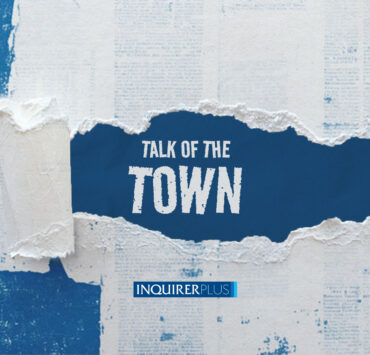The parable of the rich man and Lazarus: A stark reminder of our times

In these troubled times, the timeless parable of “The Rich Man and Lazarus” from Luke 16:19-31 offers a stark and sobering lens through which to view the current revelations. Jesus’ narrative, delivered to the Pharisees, speaks directly to issues of wealth, poverty, indifference, and ultimate judgment, resonating powerfully with the struggles faced by our nation today.
The gospel vividly paints the picture of a rich man who “dressed in purple garments and fine linen and dined sumptuously each day.” His life was one of unbridled luxury and self-indulgence, insulated from the harsh realities outside his opulent gates.
In stark contrast, “lying at his door was a poor man named Lazarus, covered with sores, who would gladly have eaten his fill of the scraps that fell from the rich man’s table.” Lazarus was not merely poor; he was utterly destitute, suffering, and dependent on the merest crumbs of charity. His presence, an undeniable testament to human suffering, was a constant, visible reminder that the rich man chose to ignore.
This parable finds its chilling parallel in the corruption surrounding our flood control projects. Those who have siphoned off public funds, enabling substandard construction or altogether nonexistent safeguards, are the modern-day “rich men.”
The victims—families whose homes are destroyed, whose livelihoods are washed away, and whose lives are tragically lost to preventable floods—are our contemporary Lazaruses. They are the vulnerable communities left exposed and suffering at the metaphorical gates of power, yearning for the protection that was their rightful due, but which was denied by the greed of others. Their pleas, their suffering, and their fundamental human need for safety are often treated with the same indifference the rich man showed Lazarus.
The gospel clearly describes a “great chasm” established between the rich man, tormented in the netherworld, and Lazarus, comforted in Abraham’s bosom. This chasm is not just an afterlife reality; it is a profound moral divide created in this life between those who exploit and those who suffer.
In this context, the House of Representatives, the Senate, and the Independent Commission for Infrastructure act as society’s “Moses and the prophets.” They are the voices of truth and accountability, tasked with revealing the hidden injustices, demanding answers, and calling those responsible to account. Their hearings, probes, and findings serve as a collective conscience, fulfilling a prophetic role in our nation.
The rich man’s desperate plea for Lazarus to warn his five brothers, lest they too come to his place of torment, is particularly pertinent. The ongoing investigations are precisely that warning. They serve as a powerful, public reminder to all officials, contractors, and individuals currently or potentially involved in such schemes that their actions are under scrutiny, and their corruption will inevitably lead to severe consequences, both legal and moral.
Abraham’s final, profound response to the rich man’s plea is crucial: “If they will not listen to Moses and the prophets, neither will they be persuaded if someone should rise from the dead.” This wisdom underscores that our society already possesses the necessary moral and legal frameworks—our laws, our ethical principles, and the collective outcry of our citizens—to understand and condemn corruption.
We urge our investigative bodies to pursue truth and justice relentlessly, ensuring that every individual who has enriched themselves at the public’s expense is held to account. Let these inquiries not only punish the guilty but also serve as a profound catalyst for a culture of transparency and integrity in governance. We, as citizens, must also listen to these “prophets” and demand nothing less from our leaders.
The parable of the Rich Man and Lazarus, illuminated by the tragic realities of flood control corruption, stands as a stark reminder: true prosperity is not measured by material wealth alone, but by the compassion and justice we extend to the most vulnerable among us. To ignore the suffering at our gates, or worse, to profit from it, invites a reckoning, both in our earthly courts and in the eternal judgment that awaits us all.
REGINALD B. TAMAYO
Marikina City

















